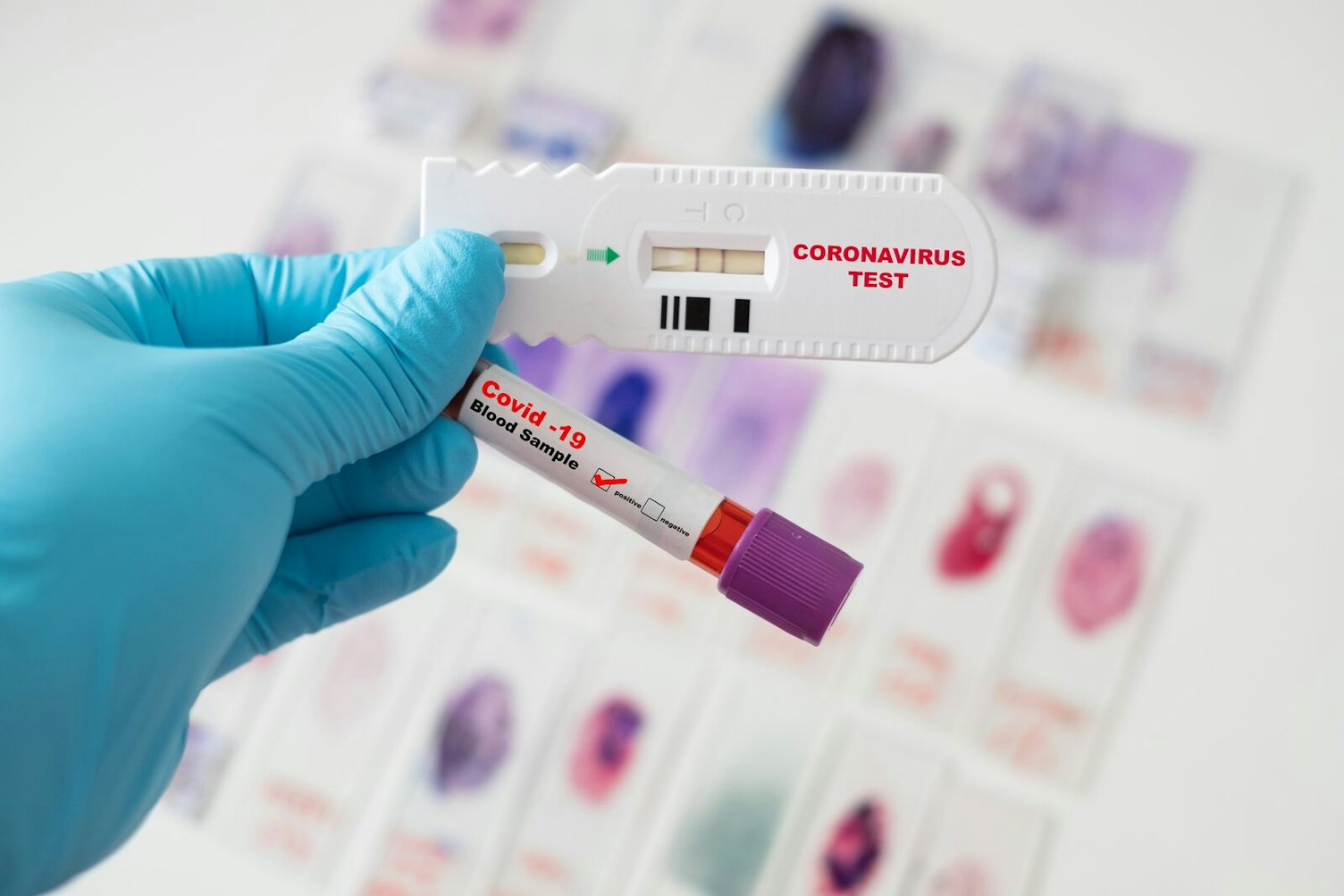IVDs are tools and instruments used to perform tests on patient samples, such as blood, urine, tissue or other bodily fluids, taken from the human body. These devices are used to detect diseases, conditions or infections, monitor health status and determine treatments or medication dosages.
As one of the largest designated Notified Bodies (NBs) under the In Vitro Diagnostic Medical Device Regulation (IVDR), we can fast-track your conformity assessment and technical documentation review – helping to bring your device to the EU market quickly and efficiently.
With growing demand, tight regulatory deadlines and limited capacity across many other NBs, we provide a faster, more flexible route to IVDR compliance. Our dedicated IVD team has the expertise and availability to support new projects. We can also help you transfer NB to avoid backlogs and accelerate your time to market, providing exceptional value without compromising quality or compliance.
Whether you're new to the IVDR or already registered with an NB, we’re here to support you every step of the way. Our global network of expert auditors and product assessors provides local insight with international reach, helping a wide range of IVDs achieve certification, including:
- Immunogenetics, genetics of cancer and inherited conditions
- Cancer markers
- Infectious disease markers
- Clinical biochemistry and other general analytes
- Sterile IVDs
- In vitro diagnostic medical device software (IVD MDSW)
- Self-tests and near-patient tests
Once your conformity assessment is complete, we issue an IVDR certificate, enabling you to affix the CE mark and legally place your device on the EU market. Certification is valid for five years and requires ongoing surveillance, including post-market follow-up, sampling and/or testing.
Multiple medical device approvals
- An NB in Belgium (1639) for the IVDR and MDR
- An NB in Finland (0598) for Software as a Medical Device (SaMD) certification
- An Approved Body (0120) for the UKCA mark
- An Approved Auditing Organization (AO) for MDSAP

What is the IVDR?
The EU IVDR (2017/746) entered into force on May 26, 2017, replacing the EU In Vitro Diagnostic Medical Device Directive (IVDD). IVDs placed on the EU market must be certified against the new requirements.
The IVDR aims to improve the safety and efficacy of IVDs, ensuring patient clinical safety and creating a transparent and robust framework for manufacturers and healthcare professionals.
Key changes from the IVDD include:
- Expanded scope of products to be considered IVDs
- Changes in device classification (from Class A devices with the lowest risk to Class D devices with the highest risk)
- Stricter oversight of manufacturers by NBs
- Enhanced requirements for post-market surveillance
- Increased transparency through the Unique Device Identification (UDI) system and European Database on Medical Devices (EUDAMED)
Transitioning from IVDD to IVDR
If you have IVDD-certified in vitro diagnostic medical devices, you must lodge a formal application for conformity assessment with an NB, such as SGS Belgium NV – NB 1639, by one of the following deadlines
- May 26, 2025: devices covered by an IVDD certificate and Class D devices that were self-declared under the IVDD
- May 26, 2026: Class C devices that were self-declared under the IVDD
- May 26, 2027: Class B devices and Class A sterile devices that were self-declared under the IVDD
You must also sign a written agreement with an NB up to four months after the relevant deadline and have an IVDR-compliant QMS in place.

Frequently Asked Questions (FAQs)
IVDR certification is a compliance requirement set by the European Union to ensure the safety and performance of IVDs. This certification is essential for manufacturers looking to market their devices within the EU.
IVDR certification is crucial, as it ensures that in vitro diagnostic devices meet stringent safety and performance standards. It not only allows you to access the EU market but also enhances the trust healthcare professionals and consumers have in your products.
Manufacturers of in vitro diagnostic medical devices who intend to sell their products within the EU. This includes companies of all sizes, from large multinationals to small startups.
Key requirements for IVDR certification include:
- Classifying the device based on risk, following the IVDR classification rules
- Implementing a compliant quality management system (QMS), such as an ISO 13485 QMS
- Preparing technical documentation and a performance evaluation report
- Compiling sufficient clinical evidence to demonstrate device safety and efficacy. This is likely to include conducting clinical performance studies
- Engaging a Notified Body for a conformity assessment
Non-compliance with the IVDR can result in severe penalties, including withdrawal of your product from the EU market, fines and legal action. Additionally, non-compliance can damage your company's reputation and endanger customer trust in your brand.
This will vary, depending on your device's classification and how complete your documentation is. On average, the process can take several months to a few years. Ensuring readiness and early engagement with a Notified Body can help expedite the process.
All IVDs newly placed on the EU market must comply with the IVDR’s regulatory requirements. Providing that several requirements are satisfied, legacy devices that were placed on the marked under the IVDD by self declaration may continue to be placed on the market, based on a transitional timeline that depends on the device’s new IVDR classification:
- December 31, 2027, for devices covered by an IVDD certificate, and Class D devices
- December 31, 2028, for Class C devices
- December 31, 2029, for Class B and Class A sterile devices
These extended transitional timelines apply only if you satisfy a series of conditions, notably engaging with a Notified Body, at latest 2.5 years before the relevant deadline. You should contact a Notified Body, such as SGS, regarding the transition arrangement before the statutory deadline.
Notified Bodies are independent organizations designated by EU member states to assess the conformity of in vitro diagnostic devices. They play a critical role in the IVDR certification process by reviewing technical documentation, conducting audits and issuing certificates of conformity.
To ensure continuous compliance with the IVDR, your company should:
- Regularly update its quality management systems
- Monitor regulatory changes and updates
- Conduct periodic internal audits
- Maintain comprehensive documentation
- Engage with Notified Bodies for ongoing assessments and re-certifications